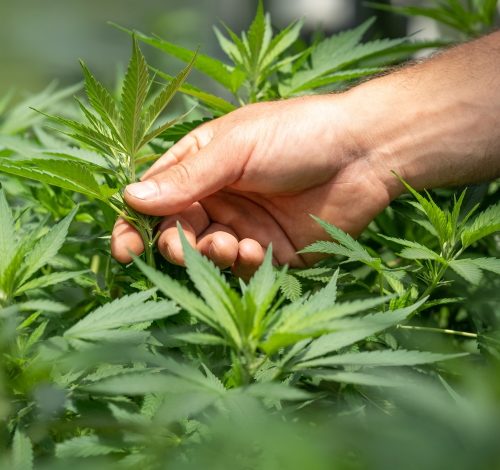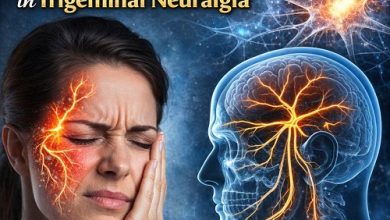The Hidden Benefits of Cannabis for Seniors That Nobody Talks About

Introduction
Cannabis, once viewed as a taboo substance, has rapidly gained recognition in recent years for its therapeutic benefits. What was once associated primarily with younger generations is now increasingly being explored by seniors seeking alternative solutions to common age-related health challenges. From managing chronic pain to improving sleep better and sleep faster and reducing anxiety, cannabis is emerging as a valuable tool in supporting the health and well-being of older adults.
As medical research advances and stigmas surrounding cannabis continue to diminish, seniors are discovering that this plant may hold answers to some of the most pressing health issues that can cause hair loss.The use of cannabis among seniors, examining its benefits, risks, forms of consumption, legal considerations, and practical guidance for safe and effective use.
A Growing Trend: Seniors and Cannabis Use
Data shows that cannabis use linked to head among older adults is on the rise. A report from the National Survey on Drug Use and Health found that cannabis consumption among Americans aged 65 and older increased by more than 75% between 2015 and 2018. Many seniors turn to cannabis after becoming dissatisfied with traditional pharmaceutical options or upon learning about its potential therapeutic effects from friends, family, or healthcare providers.
As stigma fades and legalization expands, older generations are realizing that cannabis is not simply a recreational substance—it can be a legitimate wellness tool.
Benefits of Cannabis for Seniors
Cannabis has long been a subject of controversy, speculation, and research. For decades, its use was stigmatized and often associated only with younger generations or counterculture movements. However, in recent years, a new demographic has been turning to cannabis at a surprising rate—seniors. Adults over 60 are one of the fastest-growing groups of cannabis users in North America and beyond. With medical and recreational legalization expanding worldwide, many older adults are beginning to explore cannabis as a natural way to improve quality of life, manage chronic health conditions, and even enhance overall well-being.
This article will explore the benefits of cannabis for seniors, discussing both the medical and psychological advantages, while also addressing safety, social perceptions, and future directions in senior-focused cannabis research.
1. A Natural Alternative for Chronic Pain Relief
One of the most common issues seniors face is chronic conditions Arthrits. Conditions like , neuropathy,back pain managment, and general wear and tear on joints can make daily activities difficult. While prescription painkillers—especially opioids—are often used to manage pain, they carry risks of dependency, drowsiness, and dangerous side effects.
Cannabis provides a safer alternative. Compounds in cannabis, particularly THC (tetrahydrocannabinol) and CBD (cannabidiol), interact with the body’s endocannabinoid system to regulate pain perception. Seniors often report reduced discomfort, increased mobility, and a better ability to perform daily activities without the heavy sedation caused by prescription drugs.
Hidden benefit: Unlike opioids, cannabis doesn’t depress the respiratory system, making it far less likely to cause fatal overdoses.
2. Improved Sleep Without Harsh Sedatives
Insomnia and disrupted sleep are common problems among seniors. Prescription sleep aids, while effective, often lead to next-day grogginess, dizziness, or dependency.
Cannabis—particularly indica strains or CBD-dominant products—can help regulate sleep cycles naturally. THC shortens the time it takes to fall asleep, while CBD promotes relaxation and reduces anxiety. The result is deeper, more restorative rest.
Hidden benefit: Unlike many sleep medications, cannabis may improve REM sleep behavior disorder (often associated with Parkinson’s disease) and reduce nightmares, particularly in those with PTSD.
3. Appetite Stimulation and Weight Management
Loss of appetite is a serious concern for older adults. It can result from medications, chronic illness, or natural changes in metabolism, leading to unintended weight loss, malnutrition, or frailty.
Cannabis, particularly THC, is well known for stimulating appetite. Seniors who struggle to maintain a healthy weight may find it easier to enjoy meals and sustain proper nutrition when using cannabis.
Hidden benefit: While cannabis can promote eating, CBD may help balance metabolism and regulate blood sugar, making it beneficial for seniors managing diabetes or obesity.
4. Mental Health: Anxiety, Stress, and Depression Relief
Aging can bring mental health challenges such as anxiety, loneliness, or depression. Traditional antidepressants and anti-anxiety medications often take weeks to work and may come with side effects like fatigue, nausea, or sexual dysfunction.
Cannabis offers quicker relief. CBD, in particular, has strong anxiolytic (anxiety-reducing) effects without intoxication, while small doses of THC can elevate mood and promote relaxation. Seniors who experience stress from health issues or social isolation often report feeling more balanced and positive with cannabis.
Hidden benefit: Seniors who microdose cannabis (small, controlled amounts) may experience improved emotional resilience, reduced irritability, and an increased willingness to socialize.
5. Neuroprotection and Brain Health
Cognitive decline is one of the most feared aspects of aging. While cannabis has long been associated with memory impairment, recent studies suggest cannabinoids may actually protect the brain from age-related damage.
CBD and THC have shown potential as neuroprotective agents. They may reduce inflammation in the brain, support neurogenesis (growth of new brain cells), and protect neurons from oxidative stress. Early research suggests cannabis may slow progression in conditions like Alzheimer’s disease, Parkinson’s, and other neurodegenerative disorders.
Hidden benefit: Some seniors report improved focus and mental clarity with cannabis, especially with CBD-dominant strains that reduce “brain fog.”
6. Bone Health and Osteoporosis Support
Falls and fractures are major concerns for older adults. Osteoporosis weakens bones, increasing the risk of injury. Emerging research indicates that cannabinoids may promote bone density and healing.
A study in the Journal of Bone and Mineral Research found that CBD can help stimulate bone healing after fractures. Seniors with osteoporosis may benefit from cannabis as a supplemental therapy alongside calcium, vitamin D, and lifestyle changes.
Hidden benefit: By reducing inflammation and pain in joints, cannabis can encourage seniors to stay active, indirectly strengthening bones and muscles.
7. Reducing Polypharmacy Risks
Polypharmacy—taking multiple prescription medications at once—is common among seniors. Unfortunately, it also increases the risk of drug interactions, side effects, and hospitalizations.
Cannabis may help reduce reliance on certain medications. For example, seniors using cannabis for pain may require fewer opioids or NSAIDs. Those using it for sleep may cut down on sedatives. This not only minimizes side effects but also lowers healthcare costs.
Hidden benefit: Cannabis can serve as a multi-functional treatment—addressing pain, sleep, and mood simultaneously—reducing the need for multiple prescriptions.
8. Social and Emotional Connection
Cannabis isn’t just about physical health. Many seniors find that cannabis fosters social interaction, whether through group activities, dispensary visits, or simply sharing the experience with friends or family.
Isolation is a serious problem for older adults, contributing to depression and even physical decline. Cannabis can act as a social catalyst, encouraging connection and reducing loneliness.
Hidden benefit: Seniors who engage in cannabis-friendly communities often report feeling more youthful, open-minded, and engaged with the world.
9. Safer Alternative to Alcohol
Alcohol remains a common coping mechanism for stress, loneliness, or discomfort among seniors. However, alcohol increases the risk of falls, liver disease, and cognitive decline.
Cannabis offers a safer alternative. It can provide relaxation, mood enhancement, and social lubrication without the liver damage or high addiction potential of alcohol.
Hidden benefit: Seniors switching from alcohol to cannabis may experience improved liver function, better hydration, and reduced risk of accidents.
10. Enhanced Creativity and Enjoyment of Life
Aging doesn’t mean giving up on joy or creativity. Many seniors report that cannabis enhances their appreciation of art, music, and nature. It can inspire new hobbies, spark creativity, and bring back a sense of wonder often lost in adulthood.
Hidden benefit: Cannabis may rekindle motivation for activities like painting, gardening, writing, or simply enjoying a walk outdoors, contributing to emotional well-being.
Responsible Use: Considerations for Seniors
While cannabis offers many hidden benefits, it’s important to emphasize responsible use. Seniors often metabolize substances differently and may be more sensitive to effects. Here are key considerations:
- Start Low, Go Slow – Begin with small doses, especially with THC, to avoid dizziness or unwanted intoxication.
- Choose the Right Product – CBD-dominant or balanced THC/CBD strains are often best for seniors. Edibles, tinctures, or topicals may be preferable to smoking.
- Consult with a Healthcare Provider – Especially if taking prescription medications, since cannabis can interact with certain drugs.
- Monitor for Side Effects – Dry mouth, dizziness, and changes in appetite are possible, but usually manageable.
- Know the Law – Cannabis legality varies by state and country, so it’s essential to understand local regulations.
Breaking the Stigma
For decades, cannabis was stigmatized as a dangerous drug. Many seniors grew up during the height of anti-marijuana campaigns and may still carry misconceptions. Education and open conversations are essential to break this stigma.
Organizations, healthcare providers, and community groups are increasingly offering resources tailored to older adults interested in cannabis. This shift is helping seniors feel more comfortable exploring cannabis as part of their wellness journey.
Conclusion:
Cannabis is not a cure-all, but it offers a surprising array of hidden benefits for seniors—many of which remain underappreciated. From pain relief and better sleep to improved mental health, bone strength, and social connection, cannabis has the potential to transform the aging experience.
As research grows and stigma continues to decline, more seniors may discover that cannabis isn’t about getting “high.” It’s about getting healthy, staying active, and reclaiming quality of life in ways that traditional medicine often overlooks.
In the end, the real hidden benefit of cannabis for seniors is hope—hope for better days, more comfort, and a fuller, more joyful life.




